Filter by
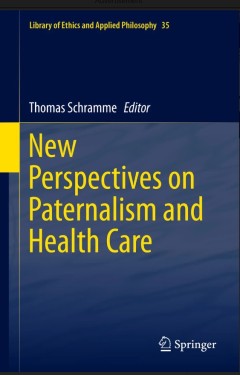
New Perspectives on Paternalism and Health Care
This work sets the stage regarding debates about paternalism and health care for years to come. The anthology is organized around four parts: i) The concept of paternalism and theoretical issues regarding the idea of anti-paternalism, ii) strategies for justifying different forms of paternalism, iii) paternalism in psychiatry and psychotherapy, iv) paternalism and public health, and v) paternal…
- Edition
- 1
- ISBN/ISSN
- 1387-6678
- Collation
- XII, 299
- Series Title
- Library of Ethics and Applied Philosophy
- Call Number
- -

G.W. Leibniz, Interrelations between Mathematics and Philosophy
Up to now there have been scarcely any publications on Leibniz dedicated to investigating the interrelations between philosophy and mathematics in his thought. In part this is due to the previously restricted textual basis of editions such as those produced by Gerhardt. Through recent volumes of the scientific letters and mathematical papers series of the Academy Edition scholars have obtained …
- Edition
- -
- ISBN/ISSN
- 978-94-017-9664-4
- Collation
- -
- Series Title
- -
- Call Number
- -
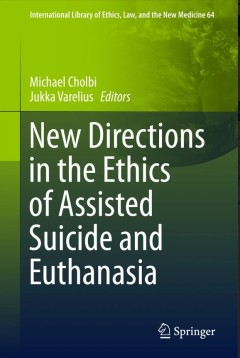
New Directions in the Ethics of Assisted Suicide and Euthanasia
This book provides novel perspectives on the ethical justifiability of assisted dying. Seeking to go beyond traditional debates on topics such as the value of human life and questions surrounding intention and causation, this volume promises to shift the terrain of the ethical debates about assisted dying. It reconsiders the role of patient autonomy and paternalistic reasons as well as the part…
- Edition
- 1
- ISBN/ISSN
- 978-3-319-22049-9
- Collation
- IX, 252
- Series Title
- International Library of Ethics, Law, and the New Medicine
- Call Number
- -

eCommerce and the Effects of Technology on Taxation Could VAT be the eTax So…
This book focuses on the impact of technology on taxation and deals with the broad effect of technology on diverse taxation systems. It addresses the highly relevant eTax issue and argues that while VAT may not be the ultimate solution with regard to taxing electronic commerce, it can be demonstrated to be the most effective solution to date. The book analyzes the application and the effective…
- Edition
- -
- ISBN/ISSN
- 978-3-319-15449-7
- Collation
- 1
- Series Title
- -
- Call Number
- -
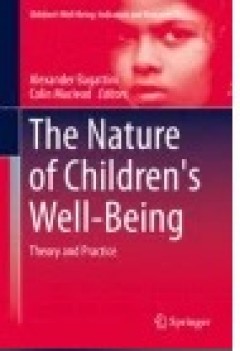
The Nature of Children's Well-Being
This book presents new findings that deal with different facets of the well-being of children and their relevance to the proper treatment of children. The well-being of children is considered against the background of a wide variety of legal, political, medical, educational and familial perspectives. The book addresses diverse issues from a range of disciplinary perspectives using a variety of …
- Edition
- -
- ISBN/ISSN
- 978-94-017-9252-3
- Collation
- XIX, 262
- Series Title
- Children’s Well-Being: Indicators and Research
- Call Number
- -
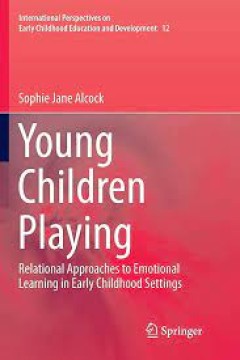
Young Children Playing Relational Approaches to Emotional Learning in Early …
The subject of this book is young children’s emotional-social learning and development within early childhood care and education settings in Aotearoa-New Zealand. The focus on emotional complexity fills a gap in early childhood care and education research where young children are frequently framed narrowly as ‘learners,’ ignoring the importance of emotional functioning and the feelings wi…
- Edition
- -
- ISBN/ISSN
- 978-981-10-1207-5
- Collation
- -
- Series Title
- -
- Call Number
- -
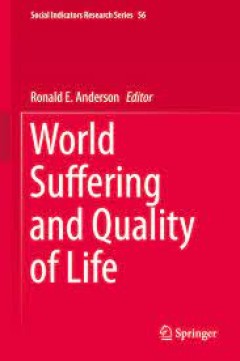
World Suffering and Quality of Life
This is the first book tackling the topic of world suffering. It compiles in one place the ideas, perspectives, and findings of researchers from around the world who pioneered research-based understanding of human suffering. Some chapters use the paradigm of ‘quality of life’ to explore ways to enhance knowledge on suffering. Other chapters show how concepts and knowledge from suffering re…
- Edition
- -
- ISBN/ISSN
- 978-94-017-9670-5
- Collation
- -
- Series Title
- -
- Call Number
- -
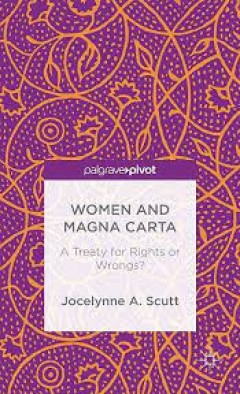
Women and The Magna Carta A Treaty for Control or Freedom
On the eight-hundredth anniversary of the Magna Carta, Women and the Magna Carta investigates what the charter meant for women's rights and freedoms from an historical and legal perspective.
- Edition
- -
- ISBN/ISSN
- 978-1-137-56235-7
- Collation
- -
- Series Title
- -
- Call Number
- -
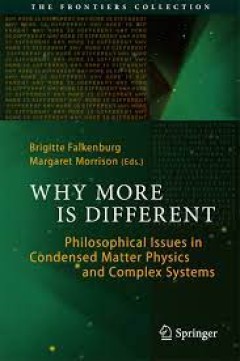
Why More Is Different Philosophical Issues in Condensed Matter Physics and C…
The physics of condensed matter, in contrast to quantum physics or cosmology, is not traditionally associated with deep philosophical questions. However, as science - largely thanks to more powerful computers - becomes capable of analysing and modelling ever more complex many-body systems, basic questions of philosophical relevance arise. Questions about the emergence of structure, the nature o…
- Edition
- -
- ISBN/ISSN
- 978-3-662-43911-1
- Collation
- X, 280
- Series Title
- -
- Call Number
- -
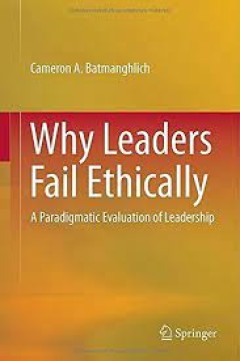
Why Leaders Fail Ethically A Paradigmatic Evaluation of Leadership
Contrary to popular conceptions that ethical failures in leadership are correlated with economic downturns and other stressful market conditions, this book argues that such transgressions are an intrinsic element of leadership, as it is defined under the current prevailing paradigm. In recent years the crisis of failures in ethical leadership across organizations, particularly corporations, …
- Edition
- -
- ISBN/ISSN
- 978-3-319-12733-0
- Collation
- XII, 144
- Series Title
- -
- Call Number
- -
 Computer Science, Information & General Works
Computer Science, Information & General Works  Philosophy & Psychology
Philosophy & Psychology  Religion
Religion  Social Sciences
Social Sciences  Language
Language  Pure Science
Pure Science  Applied Sciences
Applied Sciences  Art & Recreation
Art & Recreation  Literature
Literature  History & Geography
History & Geography